Premium Only Content

David Bowie - Rebel Rebel (50th Anniversary Vinyl Picture Disc)
Rebel Rebel" is a song by the late English singer-songwriter David Bowie. It was released in the UK on 15 February 1974 by RCA Records as the lead single from the album Diamond Dogs. Written and produced by Bowie, the song is based around a distinctive guitar riff reminiscent of the Rolling Stones. Cited as his most-covered track, "Rebel Rebel" has been described as Bowie's farewell to the glam rock movement that he had helped initiate, as well as being a proto-punk track. Two versions of the song were recorded: the well-known UK single release and the shorter US single release, which featured added background vocals, extra percussion and a new arrangement.
Upon its release, the song was a commercial success, peaking at number five on the UK Singles Chart and number 64 on the US Billboard Hot 100. The song received critical acclaim for its central guitar riff and strength as a glam anthem. Several publications consider it to be one of Bowie's greatest songs. It was performed live by Bowie during many of his concert tours and since appeared on many compilation albums. It was remastered in 2016 as part of the Who Can I Be Now? (1974–1976) box set.
Background -
Originally planned in late 1973 as part of an aborted Ziggy Stardust musical, "Rebel Rebel" was Bowie's last single in his signature glam rock style. It was also his first hit since 1969 not to feature lead guitarist Mick Ronson; Bowie played guitar himself on this and almost all the other tracks on Diamond Dogs, producing what NME critics Roy Carr and Charles Shaar Murray called "a rocking dirty noise that owed as much to Keith Richards as it did to the departed Ronno". Singer-songwriter Jayne County, who was a cast member of Pork and among Bowie's entourage for two years, maintains that her 1973 song "Queenage Baby", which included the lyric "can't tell whether she's a boy or a girl", was an influence for "Rebel Rebel".
Recording and composition -
Recording for "Rebel Rebel" began at a solo session at Trident Studios in London in the week after Christmas 1973. It was Bowie's last known visit
The recording was completed in January 1974 at Ludolph Studios in Nederhorst den Berg, Netherlands. In the studio, Bowie informed bassist Herbie Flowers and guest guitarist Alan Parker that he wanted it to "sound like the Stones", before he picked up Parker's black Les Paul and played it to them. Parker then completed it, before the rest of the backing track was recorded.
According to biographer Marc Spitz, the lyrics of "Rebel Rebel" revisit familiar Bowie territory, featuring "a 'hot' young 'tramp' worrying his or her parents with his or her sexy nihilism", are reflected by the line "You got a few lines and a handful of 'ludes'." Even though the world is ending, the "Rebel" doesn't care, suggesting "we like dancing and we look divine. It also features gender-bending lyrics ("You got your mother in a whirl / She's not sure if you're a boy or a girl"). According to author Peter Doggett, in the context of Diamond Dogs, the song serves as a "musical continuation" between the "Sweet Thing/Candidate/Sweet Thing (Reprise)" medley: it begins with a D to E chord change that was prefigured with a bass guitar slide that constructed the medley's final "chaotic" moments.
The song's distinctive guitar riff is described by rock journalist Kris Needs as "a classic stick-in-the-head like the Stones' 'Satisfaction'". The riff's chords are D, E, and A and were created by Bowie and enhanced by Parker, who, according to Doggett, added the "downward trail" at the end of each line. Paul Trynka writes that Parker added "a particular chord shape rather than the original single note just before the chord change and a distinctive 'beeeoonng' in the last line of the chorus just as [Bowie] sings 'I love you so'." Bowie later said, "It's a fabulous riff! Just fabulous! When I stumbled onto it, it was 'Oh, thank you!'" Parker later said Bowie came up with the Stones-like riff to "piss off" Mick Jagger. Parker was upset upon learning he was uncredited on the final version. He stated: "I can tell my own playing, and my own sound, and I know it's me." Flowers further recalled: "David played the riff to Alan, Alan made sure it was good enough to record, then [Alan] played it." Although O'Leary compliments the riff, he notes that with Ronson's absence, it gets "run into the ground"; throughout the song's over four-minute runtime, the riff is solely absent in the two bridges and the "hot tramp" lines.
Originally released in 1974 by RCA records. The vinyl in video was released on May 25th 2024.
Recorded live at the She Shack Studio May 27th 2024.
© Copyright Danny Diess 2024.
-
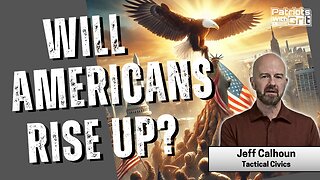 1:13:00
1:13:00
Patriots With Grit
6 hours agoWill Americans Rise Up? | Jeff Calhoun
8.66K7 -
 14:55
14:55
Exploring With Nug
7 hours ago $5.95 earnedWe Found Semi Truck Containers While Searching for Missing Man!
31K4 -
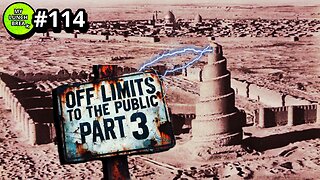 27:57
27:57
MYLUNCHBREAK CHANNEL PAGE
14 hours agoOff Limits to the Public - Pt 3
61.9K54 -
 38:07
38:07
Michael Franzese
7 hours agoLeaving Organized Crime and Uncovering Mob in Politics: Tudor Dixon and Michael Franzese
49.5K13 -
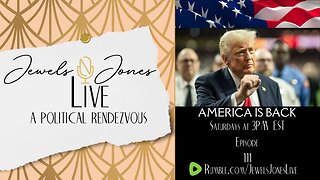 2:42:54
2:42:54
Jewels Jones Live ®
2 days agoAMERICA IS BACK | A Political Rendezvous - Ep. 111
46.2K41 -
 8:47:33
8:47:33
Due Dissidence
1 day agoLIVE: Workers Strike Back Conference ft. Chris Hedges, Jill Stein, Kshama Sawant, and More!
88.1K53 -
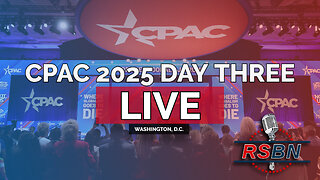 8:36:37
8:36:37
Right Side Broadcasting Network
5 days agoLIVE REPLAY: CPAC 2025 Day Three with President Donald J. Trump - 2/22/25
407K94 -
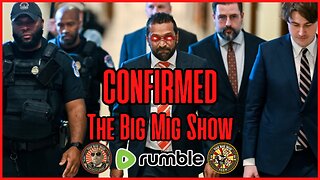 1:05:34
1:05:34
The Big Mig™
15 hours agoConfirmed Kash Patel New FBI Director, Bring On The Pain |EP483
88.9K25 -
 53:59
53:59
Tactical Advisor
11 hours agoThe Vault Room Podcast 009 | Everyone Getting $5000?!
72K11 -
 2:04:44
2:04:44
TheAlecLaceShow
22 hours agoLive at CPAC | Interviews with Dean Cain, Rep. Comer and more! | The Alec Lace Show
80.9K4